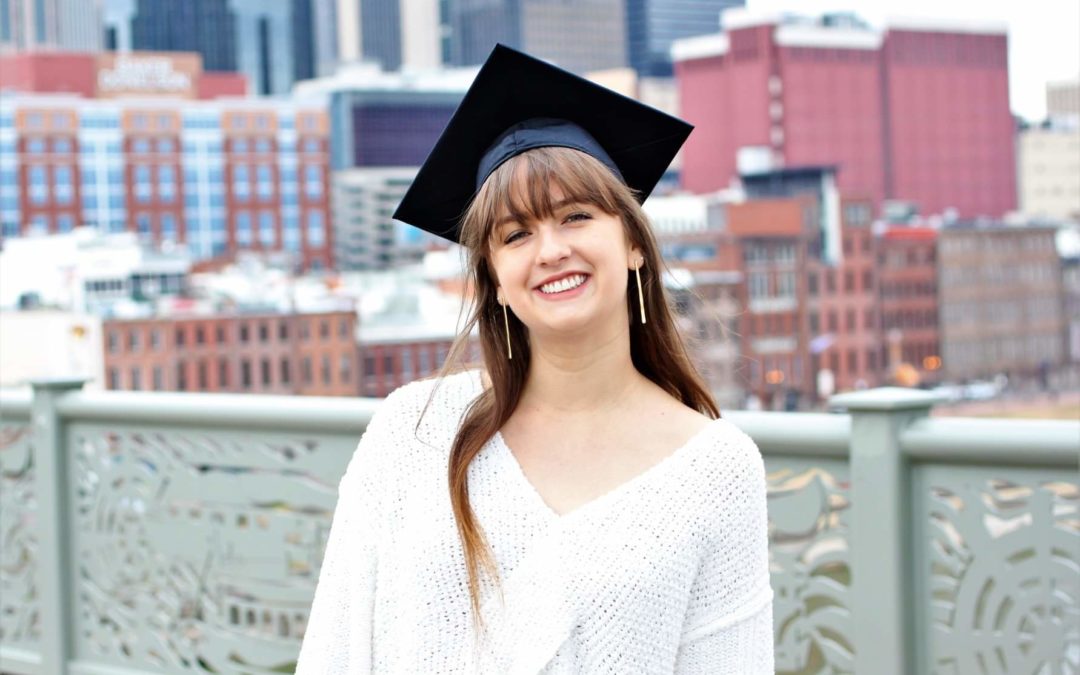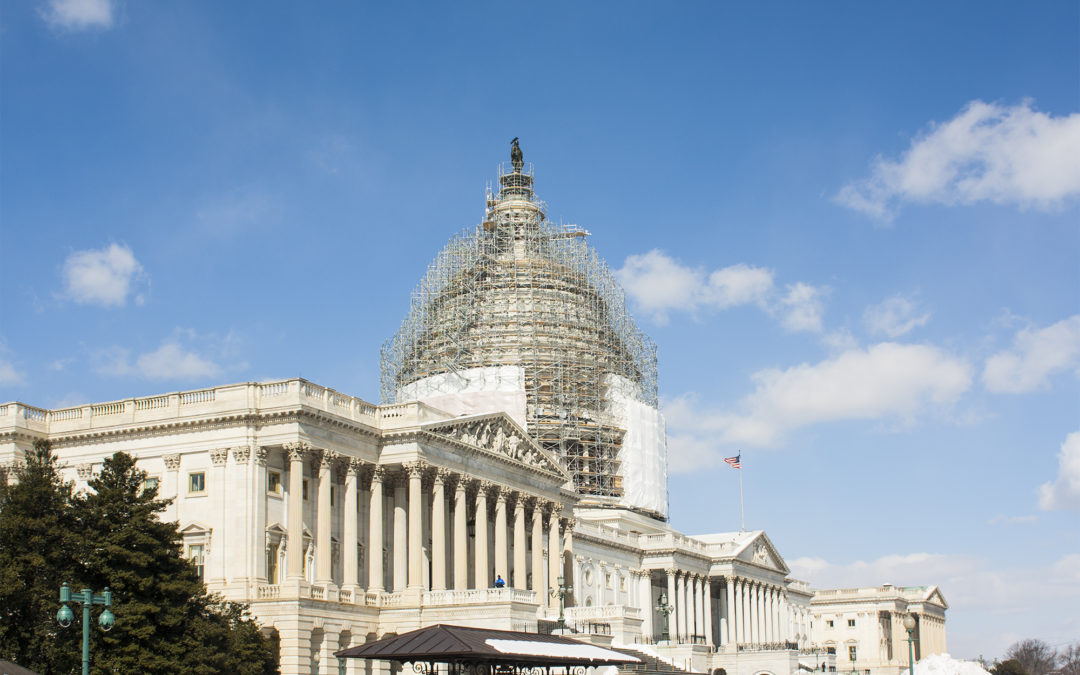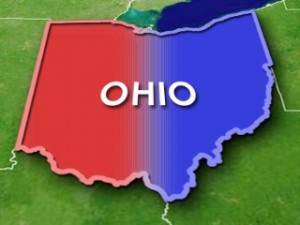
by Quinn Gorte | Apr 19, 2019 | News Slider, Student Spotlight
After applying for the Fulbright Scholars Program with the support of numerous friends, professors and others, Lipscomb graduate Lauren Borders, along with four out of seven semi-finalist Lipscomb students, was accepted by the program. “The application process and being given this has been one of the most humbling experiences of my life, because the people that I asked to help me do this delivered beyond what I could’ve ever expected,” Borders said. “So many people helped me out… I’m just very grateful for all the people in my corner and what they did for me.” The Fulbright Scholar Program is sponsored by the U.S. Department of State’s Bureau of Educational and Cultural Affairs and offers scholarships for students to live abroad while teaching English or conducting research. For Borders, who recently graduated with a strategic communication major and international studies and Spanish minors, this means living in Uruguay for nine months and researching the country’s political climate. “My project is a journalism-based research project about political broadcast journalism and its effect on political division within the state and the culture,” Borders said. Borders plans to focus her research on “what kind of measures Uruguayan press takes to present a diverse opinion… [The basis of my research is] the relationship between political journalism and how divided the people are politically.” “Basically, [it’s] how you talk about politics at your dinner table with your friends, and how your sources of journalism enforce those ideals,” Borders said. Borders’s background in news and politics inspired her research project idea. “I obviously love journalism, but I also work in politics,” Borders said. “In college, I also did...

by Konnor Gottfred | Mar 9, 2019 | News Slider, Opinion
DISCLAIMER: This article is the opinion of the author and is not intended to reflect the opinions of Lumination Network. Moderation is disappearing in the American political landscape. Over the past twenty years, there has been a continual shift or reoccurring trend in the politics of the everyday citizen where viewpoints across the partisan spectrum have started to become less and less varied. In turn, many citizens are slowly pulling away from the opposing side and becoming more self-contained within their preferred party. The middle ground we used to find between the parties is being swallowed up by a more radical wave stemming from both sides of the issue. This trend, often referred to as political polarization, paints a potentially bleak future of American politics as both parties continue to become more and more enveloped in their own views. The rise of polarization has had an inverse effect on compromise as these like-minded bubbles often breed little criticism, which opens the way for more extreme views to be adopted. The ideas put out by politicians keep getting more and more radical because we as a society allow them to. In many instances, polarization is furthered by the everyday people you associate with. A majority of people say that their friends and family share similar if not identical viewpoints to theirs. The Overton Window is a political theory that defines the boundaries for what stances a politician can take and still be elected. The Mackinac Center for Public Policy states that “The [Overton] window shifts to include different policy options not when ideas change among politicians, but when ideas change in...
by Brianne Welch | Sep 20, 2014 | News Slider
The Lipscomb University Department of Communication and Journalism hosted the inaugural Morality in the Media conference Friday. The conference consisted of a variety of journalists and speakers who talked about different aspects of the media. From the changing dynamic of the media and its consumers, to sessions about how to cover gun control issues and gay marriage. Department of Communication Chair Alan Griggs opened up the conference with a welcome to introduce the first speaker Kelly McBride. McBride is the Vice President of Academic Programs at the Poynter Institute. She discussed how the media has changed since the 20th century, and different trends in the media as it relates to consumers. “Students who are going into journalism, or any other form of communication, need to know that our ethics are changing,” McBride said. “They’re changing because the audience is changing.” McBride wanted to make it clear that young journalists need to be aware of their surroundings and paying attention to the changes in the world. “They constantly need to be developing new knowledge about how that audience is changing, and you do that by watching what technologies does the audience adopt,” McBride said. “In addition to all the knowledge you gained in your studies, you have to be adept enough at looking at what the audience is doing, how they’re doing it, particularly around technology.” Following McBride’s speech, there was a panel of guests who discussed the way the media covers controversial issues. The first issue was gun control. The speakers were: retired editorial page editor for The Tennessean Dwight Lewis, WREG-TV news director Bruce Moore, WSMV-TV news reporter...
by Sydney Poe | Jan 28, 2014 | Uncategorized
Growing up, organizational communications and public relations major Emily Poe always wanted to make a difference in the world. To some kids, that leads them on to be teachers, nurses or doctors. For Emily it meant a career in politics. Poe spent time growing up searching the history of different political parties and watching presidential debates to get a better grasp on the world of politics. It became clear pretty quickly that the Republican side is where she fit best. “It aligns with my faith which then defines every aspect of my life, and that includes politics,” Poe said. “I know a lot of times people say they don’t want faith and politics to mix, but to me, they’re the perfect combination.” She started out as a political science major, but transferred to organizational communications and public relations to better fit her career path. During her sophomore year, Poe got involved with the Lipscomb College Republicans and became president of the club during her junior year. Soon after joining, Poe joined the Tennessee College Republicans, where she is now the Middle Tennessee Vice Chair. “The old administration really had left us disorganized, but under new leadership, we were able to turn that around,” Poe said. “We have fund raised, we have campaigned and we’ve done a lot more under the new administration.” Through the Tennessee College Republicans, she’s been able to attend a fundraiser for Paul Ryan while he campaigned under Mitt Romney during the most recent election. She has also interned under Governor John Kasich of Ohio and attended the GOP National Convention in Tampa, Fl. “Part of...

by Jeremy Keck | Nov 5, 2012 | News Slider
Although the votes from all 50 states in the presidential election will be tallied on Tuesday, many feel the election comes down to one state: Ohio. The candidates’ spending shows that the Buckeye State is a major focus on Election Day. Team Obama and Team Romney have already spent a combined $128 million in TV ads in Ohio alone aimed to sway voters to their side. A lot of people outside the state may wonder, “Why has Ohio been labeled the big swing state this year?” For Drew Lykins from Marysville, Ohio, the uncertainty is common practice. “They’ve been a swing state ever since I’ve been alive,” said Lykins, a senior exercise science major. “They’ve just always been so divided, and it’s a big state being worth 18 electoral votes.” For those who want to delve deeper into the topic, Emily Haas, a Cincinnati native, offered some insight. “We have a lot of big cities,” said Haas, a double major in history and political science. “We’ve got Toledo, Columbus, Cleveland and Cincinnati. Larger cities tend to lean democratic. However, we also have a lot of rural area.” All of the rural population is important to keep in mind, as farming along with manufacturing are two of the state’s major industries. Haas explained that the state’s farming residents tend to be more conservative. While Ohio may be evenly split politically, Lykins and Haas agreed that each candidate’s stance on economic issues will play a major role in the election. “The economic downturn has hit Ohio pretty hard,” Lykins said, referencing the manufacturing that takes place. “This election is very unique,”...




